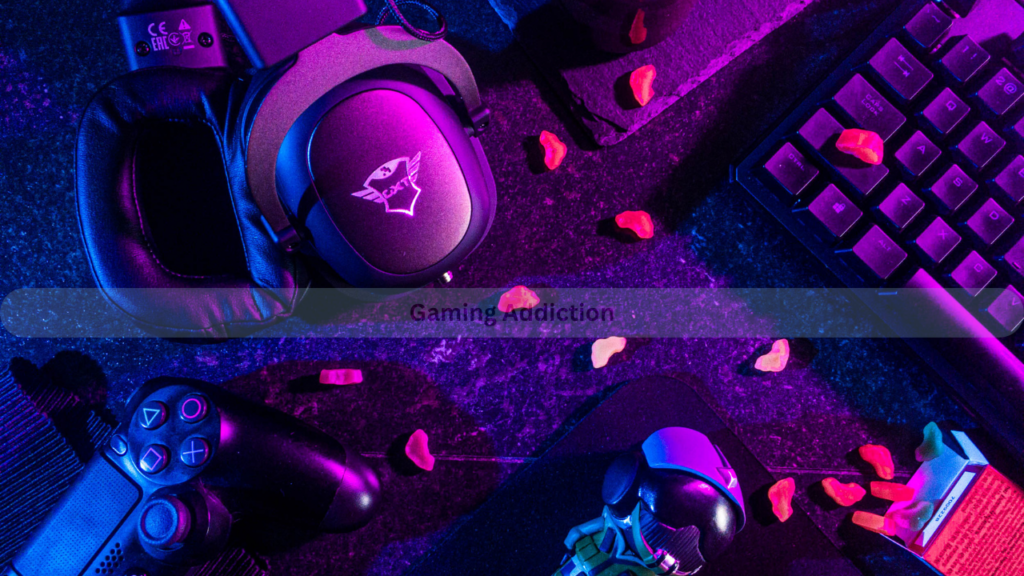
Online gaming has become a significant part of modern life, providing entertainment, connection, and a sense of achievement for millions of people worldwide. However, for some, what starts as a hobby can spiral into an addiction, controlling their lives and affecting their mental, emotional, and social well-being. When the game takes over, it’s crucial to recognize the signs of addiction and take steps toward breaking free from its grip.
Understanding Online Gaming Addiction
Online gaming addiction, also known as Internet Gaming Disorder, occurs when a person prioritizes gaming over other essential aspects of life, such as work, relationships, and personal health. The immersive nature of online games, with their rewards, challenges, and social interactions, can make it easy for individuals to lose track of time and become consumed by the virtual world.
This addiction often manifests through several key signs:
- Neglecting responsibilities: Gamers may ignore school, work, or personal obligations, focusing instead on advancing in a game.
- Preoccupation with gaming: Addicts constantly think about their next gaming session, even when they’re not playing.
- Inability to reduce or stop gaming: Despite knowing the negative impact, many individuals find it difficult or impossible to limit their gaming time.
- Using gaming as an escape: Many people turn to gaming as a way to avoid real-world problems, using the virtual world to escape feelings of stress, anxiety, or depression.
- Loss of interest in other activities: Hobbies, socializing, and even physical health may take a back seat to gaming.
The Impact of Online Gaming Addiction
The effects of online gaming addiction are far-reaching, affecting various areas of life. Physically, extended periods of gaming can lead to sleep deprivation, poor posture, eye strain, and a sedentary lifestyle, which increases the risk of obesity and other health conditions.
Emotionally, addiction can cause feelings of isolation, anxiety, and depression. Since addicts often withdraw from social activities to play, they may feel disconnected from the real world, leading to loneliness and increased reliance on gaming for comfort.
Socially, relationships can suffer. Friends and family members may notice the addict becoming increasingly distant or unreliable, causing strain and conflict. In some cases, the addict may lose interest in real-life relationships altogether, preferring the companionship of online gamers.
Steps to Breaking Free
Acknowledging the problem is the first and most important step in overcoming online gaming addiction. Once this realization is made, individuals can take the following steps to regain control of their lives:
- Set boundaries: Limiting the time spent on games is critical. Start by setting strict daily or weekly time limits and sticking to them.
- Find alternative activities: Replacing gaming with other fulfilling activities, such as exercise, hobbies, or socializing, can help individuals rediscover a sense of balance and enjoyment in real-life pursuits.
- Seek professional help: For many, therapy or counseling is an effective way to address the underlying emotional or psychological reasons behind their addiction. Cognitive-behavioral therapy (CBT) is commonly used to treat gaming addiction by helping individuals identify negative thought patterns and behaviors and replace them with healthier coping mechanisms.
- Involve friends and family: Support from loved ones is essential. Encourage open communication about the addiction and involve others in the recovery process to help create a network of accountability and encouragement.
- Use technology to help: Ironically, technology itself can be a valuable tool in fighting gaming addiction. Apps and software designed to block or limit access to gaming platforms can serve as a useful deterrent.
Conclusion
Online gaming addiction is a growing issue, but it is one that can be overcome with the right approach. By recognizing the signs, seeking help, and taking proactive steps to break free, individuals can regain control of their lives and find a healthier balance between gaming and reality. Breaking free from online gaming addiction may be challenging, but it’s a journey worth taking for the sake of mental, emotional, and social well-being.